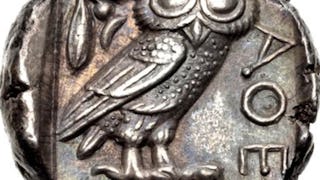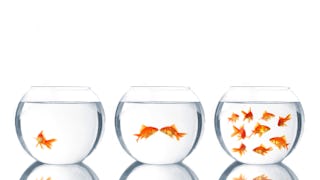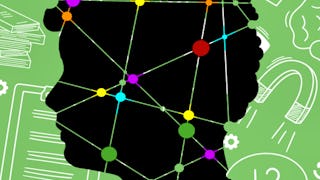A challenging but fascinating topic on the way to achieving self-knowledge is the unconscious. For well over a century, psychologists, philosophers, and many others have posited a level of mentality that is not immediately open to introspection; some would even say that certain unconscious elements cannot be known through introspection. This course will examine some of the most influential ideas about the unconscious starting with the work of Sigmund Freud, and follow the development of theories of the unconscious all the way to present research in experimental psychology. But be warned: some of the things you may learn about your unconscious mind may be surprising, and possibly even disturbing!



Know Thyself - The Value and Limits of Self-Knowledge: The Unconscious

Instructor: Mitchell Green
90,735 already enrolled
Included with 
(808 reviews)
What you'll learn
Gain an appreciation of the relation of methods of learning about oneself that do not depend on introspection.
Become familiar with contemporary research in experimental social psychology, philosophy, and neuroscience into the emotions and the unconscious.
Understand the role of affect in decision making, and self-deception.
Be able to identify and analyse unconscious mechanisms motivating own and other people's actions.
Skills you'll gain
Details to know

Add to your LinkedIn profile
20 assignments
See how employees at top companies are mastering in-demand skills

There are 6 modules in this course
Here you will get an overview of this course, including the topics covered and questions addressed, as well as what you need complete the course.
What's included
3 readings1 discussion prompt
In this first week of the course we will acquaint ourselves with the ideas of Sigmund Freud, who is probably the most famous advocate and practitioner of psychoanalysis. Shockingly for his time, Freud proposed that many facts of human behavior, including the mistakes we make, what we dream, as well as much behavior that seems on the surface to be irrational, are to be explained as being due to forces in our minds of which we are not conscious. We will look at Freud's reasons for this hypothesis and consider whether those reasons are compelling.
What's included
9 videos8 readings5 assignments5 discussion prompts
In this second week of the course we explore some developments in psychoanalytic theory that were dominant in the middle of the 20th Century. Focusing on the work of Anna Freud (Sigmund Freud's youngest daughter) and Melanie Klein, we will consider some psychoanalytic themes that emerged after Sigmund's death. Both of A. Freud and Klein were intensely interested in the psychological development of children, and we will learn about some of their ideas on this topic. Also, we will consider some phenomena that have potential resonance for our daily lives such as transference, reaction-formation, and what is now termed "gaslighting".
What's included
8 videos8 readings5 assignments4 discussion prompts
Much of the last three decades of research related to the unconscious mind has focused on its automatic character, and draws attention to the vast extent of cognitive and affective processing that occur with little or no conscious effort. Such processing is thought to have been evolutionarily adaptive in the past, as well as to simplify our daily lives even now. But these processes can also be hard to modify if they are not working for us, and may account for certain biases that seem to perpetuate some current forms of injustice in many of the world's societies. In this third week of the course we will learn about the "adaptive unconscious", paying attention both to the benefits it confers and the challenges it raises.
What's included
11 videos7 readings5 assignments4 discussion prompts
In this final module we will consider the relation between emotions and rationality. These are popularly thought to be at odds with one another, and many people hold that to be rational, one must keep emotions at bay. With a focus on the work of neuroscientist Antonio Damasio, we will consider reasons for thinking that one important kind of rationality could not function properly without emotions.
What's included
11 videos7 readings5 assignments3 discussion prompts
Apply your knowledge of the unconscious!
What's included
5 readings1 peer review1 discussion prompt
Earn a career certificate
Add this credential to your LinkedIn profile, resume, or CV. Share it on social media and in your performance review.
Instructor

Offered by
Explore more from Philosophy


The University of Edinburgh


University of Toronto
 Status: Free Trial
Status: Free Trial
American Psychological Association


Universiteit Leiden
Why people choose Coursera for their career




Learner reviews
808 reviews
- 5 stars
80.56%
- 4 stars
14.85%
- 3 stars
3.09%
- 2 stars
0.61%
- 1 star
0.86%
Showing 3 of 808
Reviewed on Aug 17, 2020
Very insightful course, I really enjoyed it. It also gave a lot of extra source material that was very helpful in getting a better understanding of concepts.
Reviewed on Aug 21, 2022
Very informative and fun. Highly recommend everyone to take this course to have a better understanding of self. I really enjoyed the meditative moment
Reviewed on Apr 12, 2022
Nice information to understand about our mind how to take make decision making thank u for sirI enjoyed the mediative sound and bamboo breathing Thank u sir

Open new doors with Coursera Plus
Unlimited access to 10,000+ world-class courses, hands-on projects, and job-ready certificate programs - all included in your subscription
Advance your career with an online degree
Earn a degree from world-class universities - 100% online
Join over 3,400 global companies that choose Coursera for Business
Upskill your employees to excel in the digital economy
Frequently asked questions
Access to lectures and assignments depends on your type of enrollment. If you take a course in audit mode, you will be able to see most course materials for free. To access graded assignments and to earn a Certificate, you will need to purchase the Certificate experience, during or after your audit. If you don't see the audit option:
The course may not offer an audit option. You can try a Free Trial instead, or apply for Financial Aid.
The course may offer 'Full Course, No Certificate' instead. This option lets you see all course materials, submit required assessments, and get a final grade. This also means that you will not be able to purchase a Certificate experience.
When you purchase a Certificate you get access to all course materials, including graded assignments. Upon completing the course, your electronic Certificate will be added to your Accomplishments page - from there, you can print your Certificate or add it to your LinkedIn profile. If you only want to read and view the course content, you can audit the course for free.
You will be eligible for a full refund until two weeks after your payment date, or (for courses that have just launched) until two weeks after the first session of the course begins, whichever is later. You cannot receive a refund once you’ve earned a Course Certificate, even if you complete the course within the two-week refund period. See our full refund policy.
More questions
Financial aid available,

